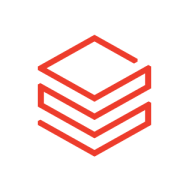

Snowflake and Databricks are prominent competitors in the cloud data management and analytics space. Snowflake may have an edge in scalability and managed services, whereas Databricks excels in machine learning capabilities and collaborative environments.
Features: Snowflake offers robust scalability, flexible resource adjustment without downtime, and multi-format accessibility that facilitates efficient data ingestion using Snowpipe. Its managed services reduce the need for hardware management. Databricks supports processing large datasets and multiple programming languages like Python and SQL, valued for its collaborative environment and powerful machine learning capabilities.
Room for Improvement: Snowflake could enhance geo-spatial query support and simplify Snowpipe's auto-ingest feature, while providing more intuitive pricing and better connector optimization. Databricks could improve predictive analytics and visualization libraries, streamline cluster management, and expand integration beyond Azure, alongside enhancing user interface elements.
Ease of Deployment and Customer Service: Snowflake and Databricks both ensure smooth deployment on public and private clouds. Snowflake users occasionally experience support delays but generally find the service responsive. Databricks' support is praised, though it may vary with issue complexity. Both provide substantial community and online resources to aid deployment.
Pricing and ROI: Snowflake uses a credit-based pricing model that can be cost-effective when optimized, but often faces criticism for pricing transparency. Databricks employs a pay-per-use model, where costs depend on computing power and data usage. While perceived as expensive, it delivers value through advanced features. Both promise ROI, with some users favoring Snowflake's cost efficiency over Databricks.
For a lot of different tasks, including machine learning, it is a nice solution.
When it comes to big data processing, I prefer Databricks over other solutions.
Whenever we reach out, they respond promptly.
As of now, we are raising issues and they are providing solutions without any problems.
I rate the technical support as fine because they have levels of technical support available, especially partners who get really good support from Databricks on new features.
I received great support in migrating data to Snowflake, with quick responses and innovative solutions.
The technical support from Snowflake is very good, nice, and efficient.
The patches have sometimes caused issues leading to our jobs being paused for about six hours.
Databricks is an easily scalable platform.
I would rate the scalability of this solution as very high, about nine out of ten.
Snowflake is very scalable and has a dedicated team constantly improving the product.
The billing doubles with size increase, but processing does not necessarily speed up accordingly.
They release patches that sometimes break our code.
Although it is too early to definitively state the platform's stability, we have not encountered any issues so far.
Databricks is definitely a very stable product and reliable.
Snowflake is very stable, especially when used with AWS.
Snowflake as a SaaS offering means that maintenance isn't an issue for me.
Adjusting features like worker nodes and node utilization during cluster creation could mitigate these failures.
We prefer using a small to mid-sized cluster for many jobs to keep costs low, but this sometimes doesn't support our operations properly.
We use MLflow for managing MLOps, however, further improvement would be beneficial, especially for large language models and related tools.
Enhancements in user experience for data observability and quality checks would be beneficial, as these tasks currently require SQL coding, which might be challenging for some users.
Cost reduction is one area I would like Snowflake to improve.
It is not a cheap solution.
Snowflake's pricing is on the higher side.
Snowflake lacks transparency in estimating resource usage.
Databricks' capability to process data in parallel enhances data processing speed.
The platform allows us to leverage cloud advantages effectively, enhancing our AI and ML projects.
The Unity Catalog is for data governance, and the Delta Lake is to build the lakehouse.
Snowflake is a data lake on the cloud where all processing happens in memory, resulting in very fast query responses.
The independence of the compute and storage within Snowflake is key.
| Product | Market Share (%) |
|---|---|
| Snowflake | 17.0% |
| Databricks | 8.5% |
| Other | 74.5% |


| Company Size | Count |
|---|---|
| Small Business | 25 |
| Midsize Enterprise | 12 |
| Large Enterprise | 56 |
| Company Size | Count |
|---|---|
| Small Business | 28 |
| Midsize Enterprise | 20 |
| Large Enterprise | 57 |
Databricks offers a scalable, versatile platform that integrates seamlessly with Spark and multiple languages, supporting data engineering, machine learning, and analytics in a unified environment.
Databricks stands out for its scalability, ease of use, and powerful integration with Spark, multiple languages, and leading cloud services like Azure and AWS. It provides tools such as the Notebook for collaboration, Delta Lake for efficient data management, and Unity Catalog for data governance. While enhancing data engineering and machine learning workflows, it faces challenges in visualization and third-party integration, with pricing and user interface navigation being common concerns. Despite needing improvements in connectivity and documentation, it remains popular for tasks like real-time processing and data pipeline management.
What features make Databricks unique?In the tech industry, Databricks empowers teams to perform comprehensive data analytics, enabling them to conduct extensive ETL operations, run predictive modeling, and prepare data for SparkML. In retail, it supports real-time data processing and batch streaming, aiding in better decision-making. Enterprises across sectors leverage its capabilities for creating secure APIs and managing data lakes effectively.
Snowflake provides a modern data warehousing solution with features designed for seamless integration, scalability, and consumption-based pricing. It handles large datasets efficiently, making it a market leader for businesses migrating to the cloud.
Snowflake offers a flexible architecture that separates storage and compute resources, supporting efficient ETL jobs. Known for scalability and ease of use, it features built-in time zone conversion and robust data sharing capabilities. Its enhanced security, performance, and ability to handle semi-structured data are notable. Users suggest improvements in UI, pricing, on-premises integration, and data science functions, while calling for better transaction performance and machine learning capabilities. Users benefit from effective SQL querying, real-time analytics, and sharing options, supporting comprehensive data analysis with tools like Tableau and Power BI.
What are Snowflake's Key Features?In industries like finance, healthcare, and retail, Snowflake's flexible data warehousing and analytics capabilities facilitate cloud migration, streamline data storage, and allow organizations to consolidate data from multiple sources for advanced insights and AI-driven strategies. Its integration with analytics tools supports comprehensive data analysis and reporting tasks.
We monitor all Cloud Data Warehouse reviews to prevent fraudulent reviews and keep review quality high. We do not post reviews by company employees or direct competitors. We validate each review for authenticity via cross-reference with LinkedIn, and personal follow-up with the reviewer when necessary.